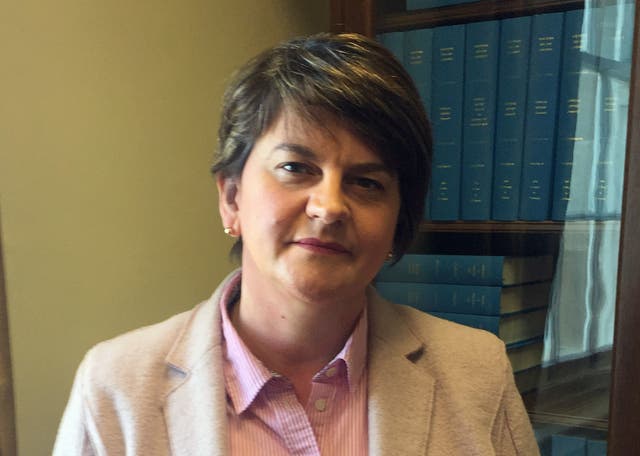Sinn Fein to set out ‘fulsome’ response to powersharing talks collapse
The implosion came despite Monday’s last minute intervention by Prime Minister Theresa May.

Sinn Fein is expected to outline the party’s next move after powersharing talks in Northern Ireland broke down.
Democratic Unionist leader Arlene Foster has urged the UK Government to set a budget and make policy decisions in the absence of a devolved executive at Stormont.
The talks collapsed after the parties failed to clinch agreement on touchstone issues such as treatment of the Irish language.
Sinn Fein’s Northern Ireland chief Michelle O’Neill said the party had stretched itself and blamed the DUP for collapsing a process aimed at rebuilding coalition government at Stormont after a 13-month suspension.

Speaking on Wednesday, Mrs O’Neill said: “These issues are not going to go away.
“Myself and Mary Lou McDonald are engaged with both governments and will continue to do that and over the course of tomorrow we will set out a more fulsome response in relation to where we go from here.”
Northern Ireland Secretary Karen Bradley said “substantive progress” had been made but conceded “this phase of talks has reached a conclusion”.
Mrs Foster said attempts to find a stable and sustainable resolution had been unsuccessful.
She said: “We cannot and will not be held to ransom by those who have refused to form an Executive for over 13 months.”
She added there was no “current prospect” of these discussions leading to a ministerial Executive being formed.
“It is now incumbent upon Her Majesty’s Government to set a budget and start making policy decisions about our schools, hospitals and infrastructure.
“Important decisions impacting on everyone in Northern Ireland have been sitting in limbo for too long.”
Months of endless talks have been held since powersharing collapsed early last year in a row over the DUP’s handling of a botched green energy scheme.
Since then divisions over issues including Irish language rights, same sex marriage and how to deal with the legacy of Northern Ireland’s troubled past have proved insurmountable.
Mrs O’Neill said: “Sinn Fein engaged, we worked in good faith, we stretched ourselves.
“We had reached an accommodation with the leadership of the DUP.
“The DUP failed to close the deal.
“They have now collapsed this process.”
The implosion came despite Monday’s last minute intervention by Prime Minister Theresa May and Irish Taoiseach Leo Varadkar, who travelled to Stormont for talks with the parties.
Stormont departments have been without ministers for months and decisions need to be made speedily about the next financial year’s public spending budgets.
Proposals for dealing with Northern Ireland’s violent past involving extra money for historic investigations and truth-telling processes have also been delayed by the impasse and may fall to Westminster to implement.
Ms Bradley said “substantive progress” had been made but conceded “this phase of talks has reached a conclusion”.
The Irish Government, co-guarantor of the 1998 Good Friday Agreement which largely ended violence, has said there can be no return to the direct rule of the period before that landmark accord.
Taoiseach Leo Varadkar said in a statement: “I very much regret the statement from the DUP. Power sharing and working together are the only way forward for Northern Ireland.”





